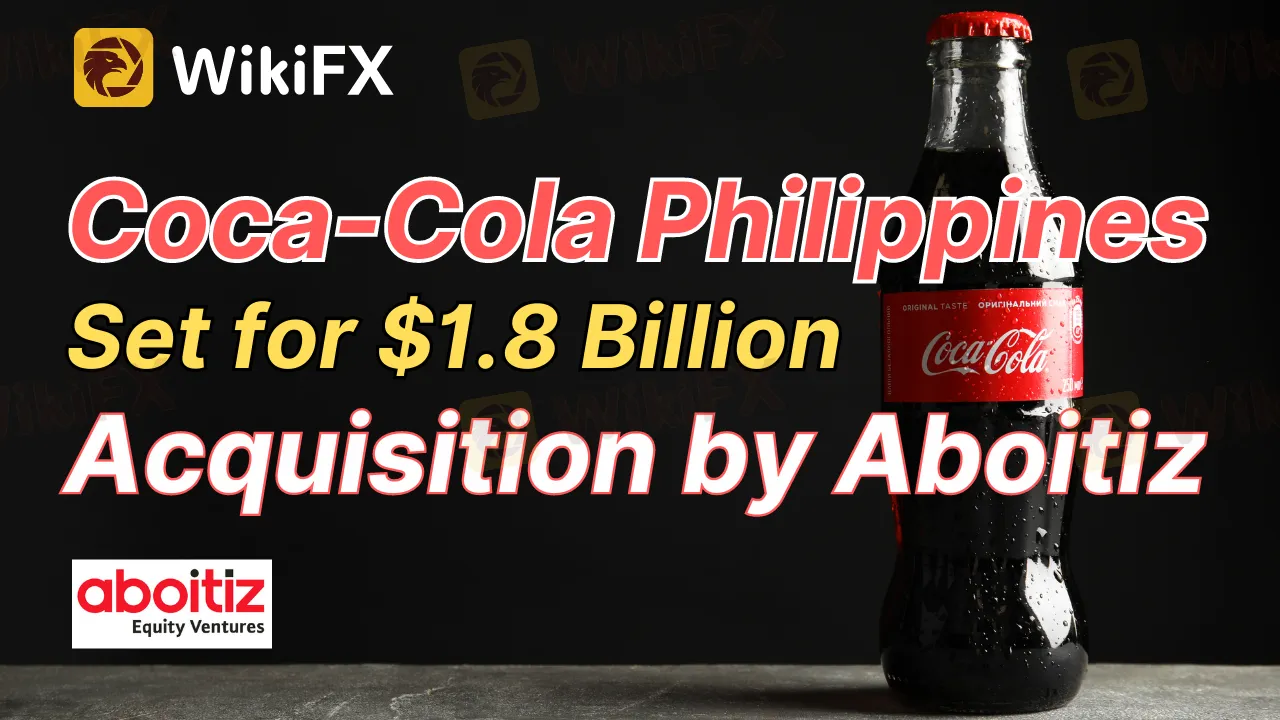简体中文
繁體中文
English
Pусский
日本語
ภาษาไทย
Tiếng Việt
Bahasa Indonesia
Español
हिन्दी
Filippiiniläinen
Français
Deutsch
Português
Türkçe
한국어
العربية
Coca-Cola Philippines Set for $1.8 Billion Acquisition by Aboitiz
Abstract:Aboitiz Equity Ventures plans a $1.8 billion acquisition of Coca-Cola Philippines as a part of their portfolio diversification strategy, aiming for completion by end of 2023.

In an exciting development, Aboitiz Equity Ventures (AEV) is venturing into the branded consumer goods space with a bold announcement: a joint acquisition of Coca-Cola Beverages Philippines, Inc. (CCBP). According to a disclosure sent to the Philippine Stock Exchange on Wednesday, AEV, in partnership with Coca-Cola Europacific Partners PLC (CCEP), aims to acquire 100% ownership of CCBP. The price tag on this bubbling deal is A cool $1.8 billion.
This acquisition is part of AEV's portfolio diversification strategy. If completed, it will mark AEV's entry into the branded consumer goods industry while building on CCEPs successful expansion into the Asia-Pacific region. This is not CCEP's first fizzing partnership, with the company having acquired Coca-Cola Amatil back in 2021.
AEV believes they are “well-positioned” to support CCBP's growth aspirations. They cite synergies from their other business segments as a key strength. With Coke's Philippine operations boasting 73 production lines and 19 plants, AEV seems ready to quench its growth ambitions.

AEV and CCEP have already entered into a non-binding letter of intent with The Coca-Cola Company for this joint acquisition. The potential deal is expected to close at the end of 2023. Its worth noting that this acquisition will be on a debt-free, cash-free basis. This aligns with Coca-Cola's intention to divest from its bottling operations.
However, a potential speed bump on the acquisition highway is the proposed 60:40 ownership split between CCEP and AEV. The deal still requires due diligence, board approvals, and the signing of definitive agreements. While talks are in advanced stages, AEV states that there is still “no certainty” that the deal will reach completion.
Local brokerage expert Luis Limlingan warns of potential snags. High sugar taxes and related product taxes could inflate operational costs. Despite these potential obstacles, Limlingan notes that AEV could provide some synergies with its units, like Pilmico. Plus, AEVs familiarity with local politics could give it a sweet edge.
For more fizzy updates on the AEV and Coca-Cola acquisitions, download and install the WikiFX App on your smartphone via this https://www.wikifx.com/en/download.html. It's a simple way to ensure you stay in the loop with the latest business news.

Disclaimer:
The views in this article only represent the author's personal views, and do not constitute investment advice on this platform. This platform does not guarantee the accuracy, completeness and timeliness of the information in the article, and will not be liable for any loss caused by the use of or reliance on the information in the article.
Related broker
Read more

Should You Beware of Forex Trading Gurus?
Know the reality behind forex trading gurus, examining their deceptive tactics, inflated promises, and the risks associated with trusting them for financial advice.

Why More People Are Trading Online Today?
Discover why online trading is booming with tech, AI, and a push for financial freedom. From stocks to crypto, it’s a thrilling hustle for all.

High Return Traps? WikiFX’s Complete Scam-Busting Handbook to Avoid Financial Fraud!
Financial scams are evolving faster than ever, and fraudsters are getting more creative in luring victims into traps. Whether it’s promising high returns or leveraging authority to build trust, scammers continuously innovate new ways to trick investors. From clone firms to cold calling schemes, it’s essential to understand how these scams work to protect your hard-earned money. This comprehensive guide by WikiFX will help you recognize and avoid common financial scams.

Do This ONE Thing to Transform Your Trading Performance Forever
The story is all too familiar. You start trading with high hopes, make some quick profits, and feel like you've finally cracked the code. But then, just as fast as your gains came, they disappear. Your account balance dwindles, and soon you’re left wondering what went wrong. Worse still, fear and confusion creep in, making every new trade a stressful gamble rather than a calculated decision. If this cycle sounds familiar, you’re not alone.
WikiFX Broker
Latest News
Exposing the Top 5 Scam Brokers of March 2025: A Closer Look by WikiFX
Gold Prices Climb Again – Have Investors Seized the Opportunity?
Webull Launches SMSF Investment Platform with Zero Fees
Australian Regulator Warns of Money Laundering and Fraud Risks in Crypto ATMs
The Withdrawal Trap: How Scam Brokers Lure Victims into Paying More
FCA to Investors: Think Twice Before Trusting These Brokers
Trump\s tariffs: How could they affect the UK and your money
Trump gambles it all on global tariffs he\s wanted for decades
HTFX Spreads Joy During Eid Charity Event in Jakarta
How Will the Market React at a Crucial Turning Point?
Currency Calculator







